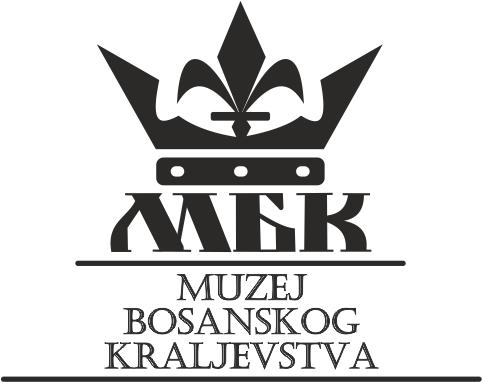Doroteja was the daughter of Prince Balša Hercegović and the granddaughter of Duke Hrvoje Vukčić Hrvatinić. In addition to Doroteja, Prince Balša also had a daughter Katarina, who was married to Prince Tvrtko Borovinić, and most likely had no male descendants. Doroteja was married to Šimun of Kladuša, and then to Ivan of Brezovica. In historiography, Doroteja has been identified with Doroteja, the daughter of Stjepan Banfi of Slavonia from 1381 to 1385, who was married to Ivaniš of Blagaj and later to Prince Martin Frankopan. Doroteja is mentioned several times in documents of Ragusan provenance and they are related to the claim of family property. These sources offer information about Doroteja’s marriages and offspring. This case concerns rent claims for land and a house that the Ragusans gave to Duke Hrvoje in 1399. Thirteen years later, on April 2, 1412, Duke Hrvoje gave this house to his wife Jelena, in addition to the town of Kotor and the county of Vrbanja, in order to settle the debt. Given that Duke Hrvoje, his wife Jelena and his son Balša died in a relatively short period of time, the house in Ragusa could only belong to the Duke’s granddaughters Doroteja and Katarina, the daughters of his son Balša. In a letter from Ragusa addressed on March 1, 1423 to King Tvrtko II Tvrtković and Doroteja’s sister Katarina, a brief overview of these unresolved property relations was presented. In Ragusa, they knew that Prince Balša had two daughters, but they did not know where they were, since both were already married. In light of their appearance, the Ragusans had no reason to dispute their inheritance rights, so each sister was to receive a half share of the income derived from the house and land. It was the Hungarian king Sigismund of Luxembourg, whom the Ragusans informed of everything in a letter dated March 4, 1423, who served as an intermediary for Doroteja in solving this problem. In the following period, Doroteja, like her sister Katarina, leased the house to members of the Rastić family from Ragusa, and her descendants continued the same practice.
Doroteja was originally married to Prince Šimun of Kladuša. There is no information regarding the date of this marriage. This marital relationship indicates the political relations that Doroteja’s father, Prince Balša, had with the noblemen in the neighborhood. She authorized her husband to take care of her possessions in Ragusa in a document dated March 23, 1433. In addition, during this period, Doroteja gave her share of the income for four years to Prince Tvrtko Borovinić, the husband of her sister Katarina. Doroteja’s marriage to Šimun of Kladuša lasted until 1434 at the latest, when she is called a widow in a document. However, already five years later, on February 7, 1439, a document shows that she was married to Ivan of Brezovica. The Brezovički noble family can be traced back to the 14th century in historical sources, but its social position in a feudal hierarchy was very low. Only the village of Brezovica, near Zagreb, is mentioned as a possession of this family. Like Doroteja’s previous husband, Ivan of Brezovica took an active part in the collection of income that his wife had in Ragusa.
In the name of his wife, on May 12, 1451, he leased half of the house and land to Benedet Rastić for 20 years. The amount of rent for this long period was 160 ducats. Doroteja did not live to see the expiration of the aforementioned contract, so in 1470 her children, Ivan and Margarita, whom she had from her marriage to Šimun of Kladuša, appeared as claimants of inheritance rights, while her marriage with Ivan of Brezovica seems to have been childless. On July 7, 1470, Ivan, Margarita and her husband Nikola Šubić leased half of the house and land to Mihail Rastić for fifty years. Georgije and Kristofor, sons of Margarita and Nikola Šubić, received money from Bartlomeo Rastić on June 11, 1495, which paid them the lease for the last 27 years. Ivan, Grgur, Martin, and Stjepan, sons of Margarita’s brother, are not mentioned in the sources in connection with the property that once belonged to their ancestor Duke Hrvoje.
Bibliography:
- Blagojević, Miloš: “Severna granica bosanske države u XIV veku” in: Bosna i Hercegovina od srednjeg veka do novijeg vremena (ed. Slavenko Terzić), Istorijski institut SANU-Pravoslavna reč Novi Sad, Beograd, 1995, 74.
- Ćošković, Pejo: “Veliki knez bosanski Tvrtko Borovinić”, Croatica Christiana periodica 20, Katolički bogoslovni fakultet, Zagreb, 1996, 68.
- Gelcich, József – Thallóczy, Lajos: Diplomatarium relationum reipublicae Ragusanae cum regno Hungariae, Magyar Tudomanyos Akademia, Budapest, 1887, 288-289.
- Isailović, Neven: “Povelja hercega Hrvoja Vukčića Hrvatinića ženi Jeleni”, Stari srpski arhiv 10, Filozofski fakultet u Beogradu-Filozofski fakultet u Banjoj Luci-Filozofski fakultet u Istočnom Sarajevu-Međuopštinski historijski arhiv u Čačku, Beograd, 2011, 165, 167-169.
- Jorga, Nicola: Notes et extraits pour servir a l’histoiredes croisades au XVe siecle, II, Ernest Leroux, Paris, 1899, 320, 363.
- Klaić, Vjekoslav: Krčki knezovi Frankapani, MH, Zagreb, 1901, 233.
- Lovrenović, Dubravko: Na klizištu povijesti (sveta kruna ugarska i sveta kruna bosanska) 1387-1463, Synopsis, Zagreb-Sarajevo, 2006, 297.
- Mrgić-Radojčić, Jelena: Donji Kraji. Krajina srednjovekovne Bosne, Filozofski fakultet u Beogradu-Filozofski fakultet u Banjaluci-Istorijski institut u Banjaluci, Beograd-Banja Luka, 2002, 109-113.
- Perojević, Marko: “Stjepan Tomaš Ostojić” in: Poviest hrvatskih zemalja Bosne i Hercegovine, HKD Napredak, Sarajevo, 1942, 513.
- Rudić, Srđan: “O kući Hrvoja Vukčića Hrvatinića u Dubrovniku”, Istorijski časopis 56, Istorijski institut, Beograd, 2008, 353-354, 360-364.
- Rudić, Srđan: “Povelja kralja Stefana Tomaša Doroteji Blagajskoj”, Građa o prošlosti Bosne 8, ANU RS, Banja Luka, 2015, 59, 61-63, 69.
- Stojanović, Ljubomir: Stare srpske povelje i pisma, I (1), SKA, Beograd-Sremski Karlovci, 1929, 510-511.
- Šišić, Ferdo: Vojvoda Hrvoje Vukčić Hrvatinić i njegovo doba, MH, Zagreb, 1902, 21-22.
